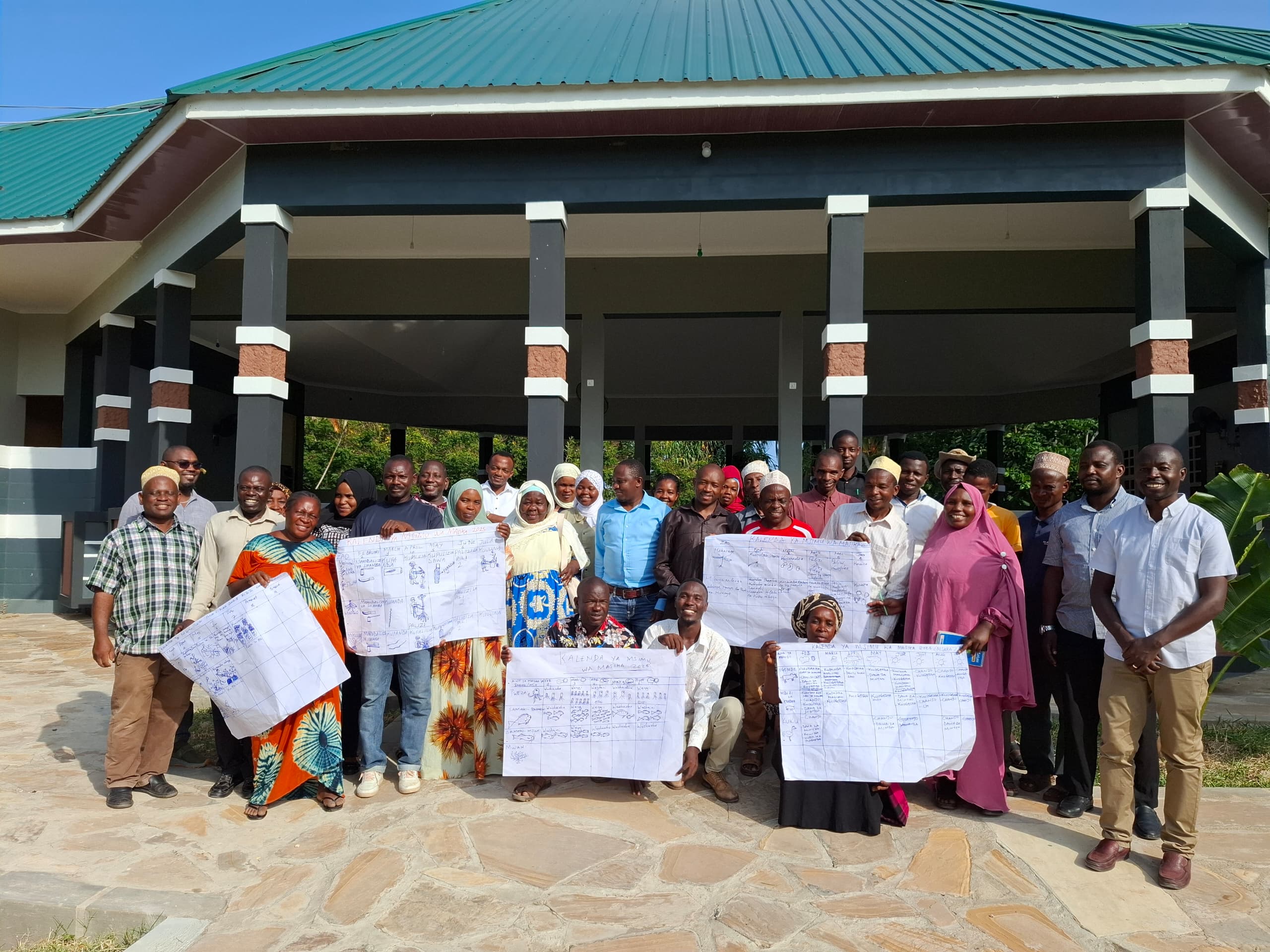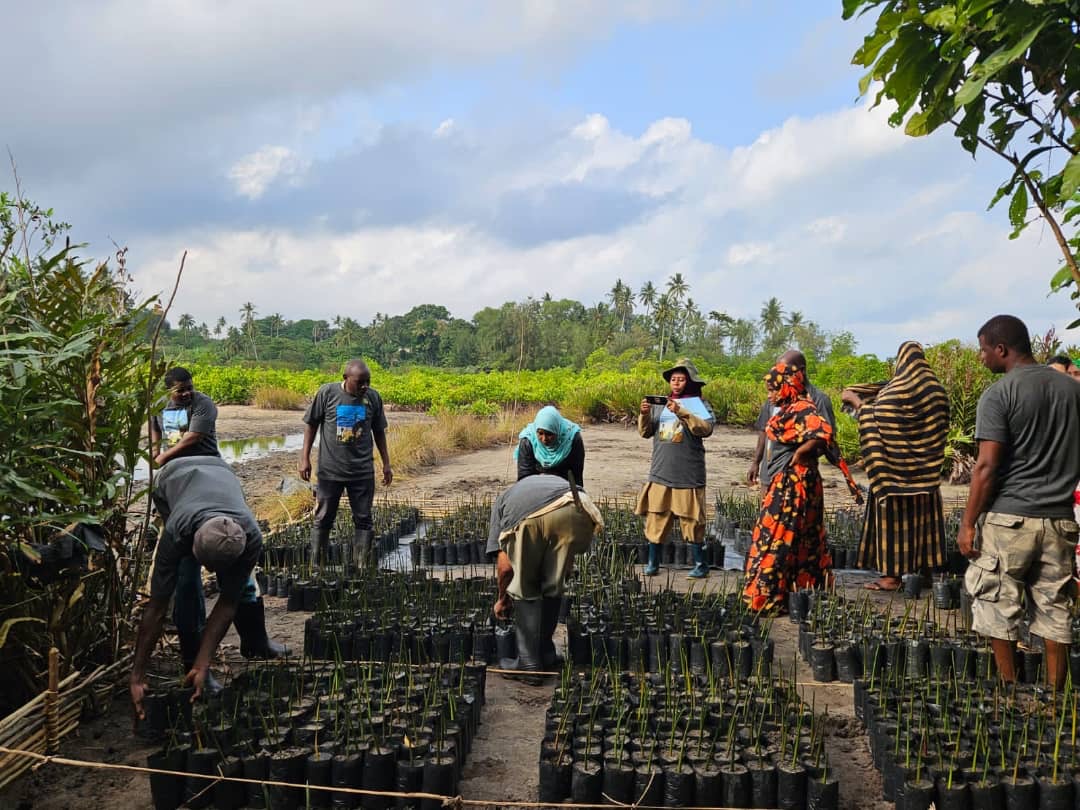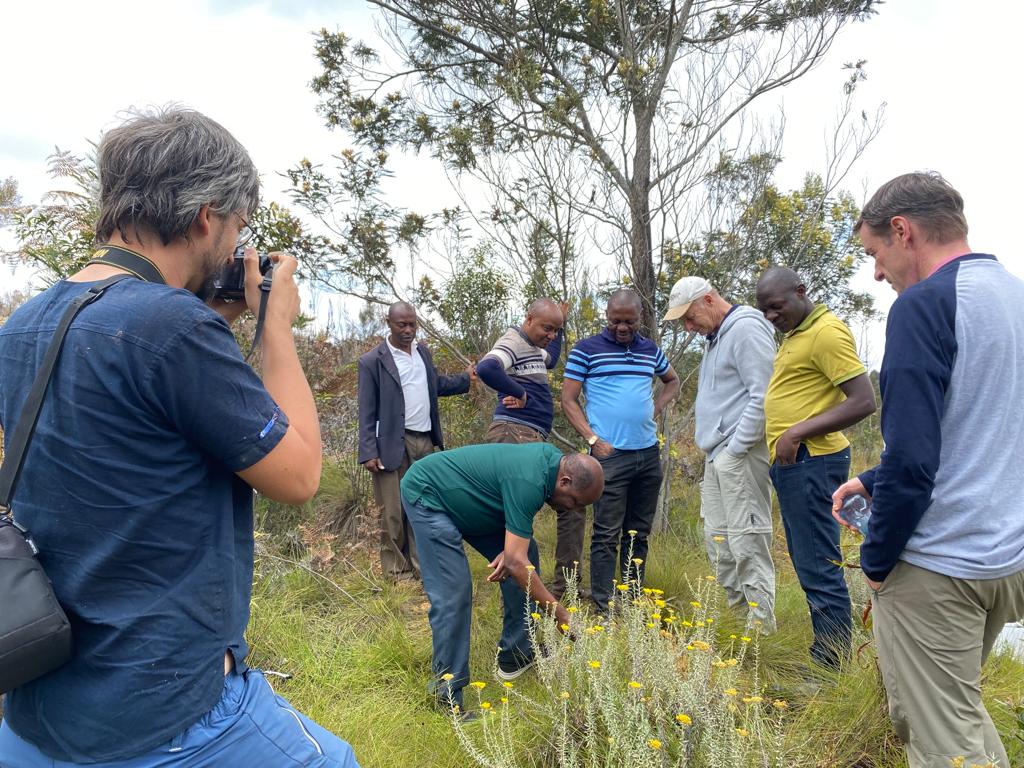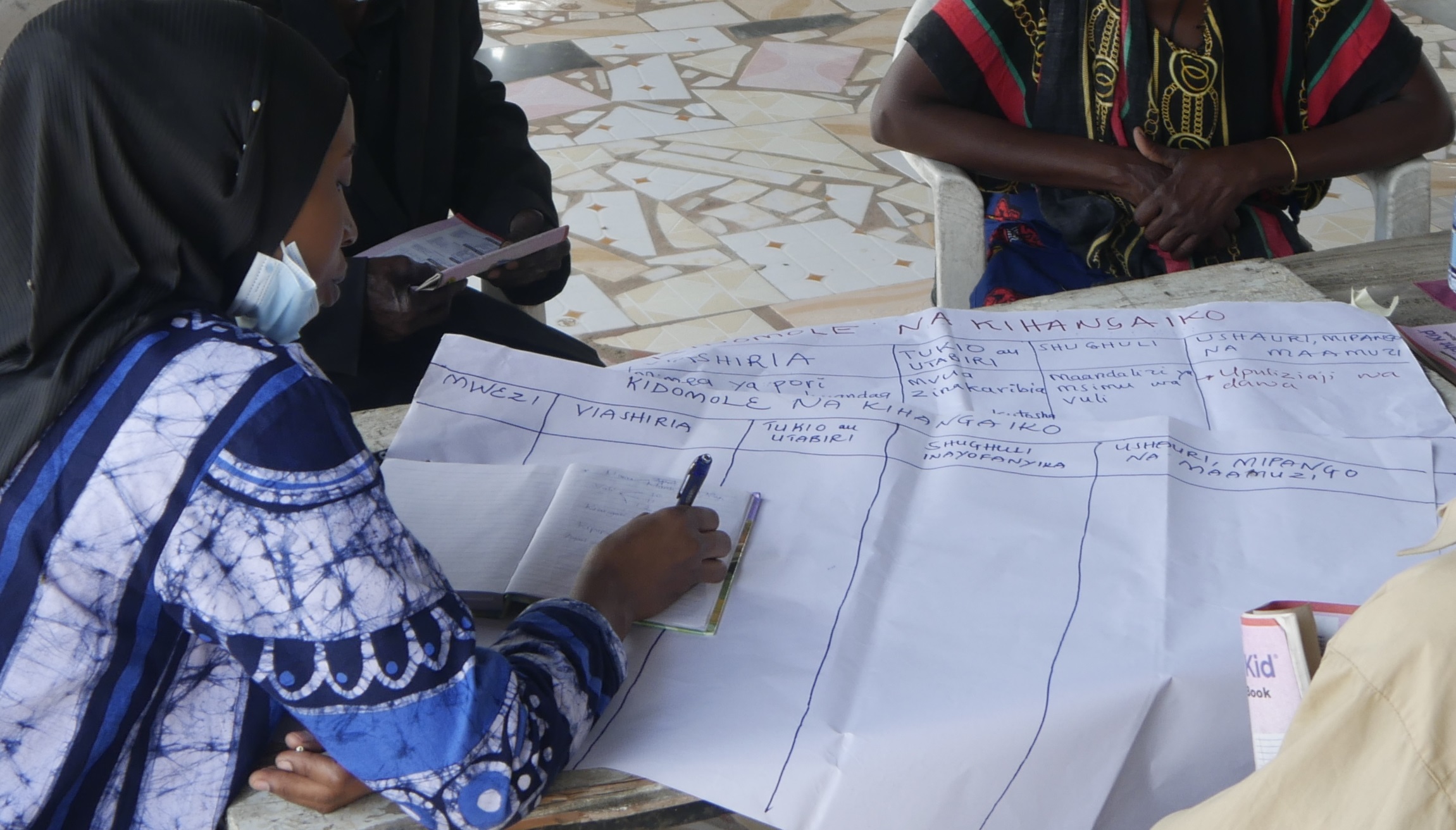Climate Services

Aligning Climate Resilience, Sustainable Development, and Poverty Reduction (Phase III)
Tanzania has high-quality and enough renewable energy sources to meet most of the country's energy demands. Still, most of these sources have remained unutilized. The Aligning II project supported the co-development of important national frameworks, including the ongoing National Renewable Energy Strategy and the road map to expand renewable energy utilization in Tanzania.
However, limited decentralization of the national energy-related framework is a significant obstacle to achieving the full potential impact of the national strategy on renewable energy, economic development, and social welfare at the local level. This limitation is due to several factors, including limited local resources, inadequate awareness to support renewable energy technology, conflicting frameworks, centralization in the nature of policies, limited stakeholder participation, and weak coordination between different stakeholders.
Aligning III is a 3 years project funded by Bread for the World which aims to integrate Renewable Energy and Climate services to inform strategic sectors such as Agriculture, Livestock, Water and Fisheries in Tanzania by 2026. This project will be conducted in 4 Districts namely; Bagamoyo, Chalinze, Lushoto and Pangani.

Strengthening the Contribution of Local Actors for a Climate Resilient Society in Zanzibar
Tanzanian coastal areas and Zanzibar islands have complex and dynamic systems in terms of both human activity and biophysical conditions. They carry a substantial proportion of the national population and support several community livelihood options.
Unfortunately, in Zanzibar, the economy, and the livelihood sectors of 87% of the population are climate sensitive with high levels of vulnerability (especially agriculture, freshwater, settlement, fisheries, and tourism) and face environmental degradation. Other linked challenges include droughts, storms, temperature rise, strong wind speed, saltwater intrusion, coastal erosion and displacement, impaired drinking water and soil fertility, and floods.
These climate change and variability challenges are resulting in significant economic costs, loss of life, poverty, and other human capital which compromise food and water security for most local communities.
Therefore, the project
contributes to developing climate resilience in local communities in Zanzibar.
Objectives
The project aims to improve climate change adaptation
practices in Zanzibar by 2025 and support the reviewing of Zanzibar political frameworks (Zanzibar Climate Change Strategy and/or Zanzibar Environment Policy strategies) in a participative manner and are coherent with the NDC.

Promoting Community-Led Nature-Based Solutions through Reforestation Efforts in Pangani District, Tanga Region and Same District, Kilimanjaro Region: PRO-NDC-ACT
Variability in weather conditions such as intense rainfall events or dry spells pose serious risks for vulnerable communities and call for urgent action in order for them to adapt to these changes and become more climate resilient through nature-based solutions. However, to this date, forests provide over 85% of Tanzania’s energy supply driving cascading effects of deforestation fueled mainly by unsustainable practices in agriculture, livestock keeping and charcoal production. It is key to break the downward spiral of deforestation by identifying spaces for reforestation and facilitating sustainable natural resources.
Cooperating with Carl von Ossietzky University of Oldenburg, the upcoming PRO-NDC-ACT project aims to promote ambitious, participatory and community-led NDC (nationally determined contributions) implementations. They shall be implemented by introducing nature-based solutions through community-led participatory and restoration efforts in different sites in coastal and northeast Tanzania. In total, the project’s objective is to establish 500 ha of near-natural community-based reforestation sites by 2025, leading to reductions in GHG emissions, lower climate risks for vulnerable communities, as well as enhanced ecosystem services.The project is funded by the International Climate Initiative of the German Federal Government to the amount of around 520,000 Euros.
Real-world laboratories:
Co-designing nature-based solutions and promote community-led, participatory forest management practices
The community-led real-world laboratories will involve two participatory reforestation and mangrove restoration initiatives in which community members co-develop and pilot such nature-based solutions, simultaneously linking national and local levels by engaging with local government authorities to agree upon specific development objectives. The scientifically involved real-world labs will build on baseline studies that identify selection criteria and collect socio-economic and ecological background information under consideration of soil and environmental conditions and expected climatic changes. Furthermore, communities that are threatened by important ecosystem goods and services will be identified.
Demonstration projects on reforestation and ecosystem restoration:
Planting indigenous tree and mangrove species
To ensure the success of the reforestation activities, they will be continuously monitored over the next coming years. Needs regarding the target of afforestation, selection of sites and species, and restoration will be assessed together with local community members in a participatory manner. CAN Tanzania will moreover train them on the importance and ways to protect them for enhanced ecosystem services.
Knowledge generation and outreach:
Holding national stakeholder workshops to disseminate best practices and lessons learned
Common learning processes will be monitored, evaluated, and facilitated in scope of the project. CAN Tanzania will organize and document national stakeholder processes and workshops on how to mainstream reforestation and disseminate guidelines on local initiatives for NDC implementation.
Key target groups involve local government authorities, CSOs and community members such as farmers, woodcutters and charcoal producers, fishers, women and youth, who can benefit from increased resilience to climate risks, climate literacy and enhanced ecosystem services. The project and related activities have paid attention to gender mainstreaming and participation through a number of measures. CAN Tanzania will target real-world laboratories specifically to women by using participatory and gender-sensitive approaches. In all project sites women, poor, aged and youth groups shall be given opportunities to take part both in reforestation activities and capacity-building workshops on ecological forest management and sustainable use of forest resources, to additionally strengthen ownership and a spirit of community and solidarity.
The PRO-NDC-ACT project will add value to ambitious and participatory NDC implementation at the community level. It enhances ecosystem services and forest management practices important for livelihood diversification, while also building a climate-resilient Tanzanian society.
Learn more about the project: https://uol.de/en/ecoeco/pro-ndc-act

Aligning Climate Resilience, Sustainable Development and Poverty Reduction in Tanzania (Phase II)
Tanzania envisions becoming a middle income country by 2025. In order to realise this ambitious vision it is elementary that Tanzania develops on a sustainable pathway addressing issues such as poverty reduction and building climate resilience. The impact of climate change causing loss and damage in Tanzania is the major threat for a sustainable development of Tanzania. Therefore it is key for Tanzania to mitigate emission and adaptate to climate change in order to reduce the vulnerability of communities and the economy. This project foucs in consquence on strenghening and empowering up-scaling of Renewable Energies (RE) and Climate Services (CS) in Tanzania.
On Renewable Energy:
The role of RE in supporting climate resilient building and realising National Determined Contributions (NDCs), as part of the Paris Agreement, cannot be over emphasized. Despite the fact that, Tanzania has abundant and high-quality RE resources which are well distributed within the country, they are largely unexploited. Still, the energy sector portfolio in Tanzania has remained predominated by traditional biomass and imported expensive fossil fuels. This situation largely leads to deforestation and limits opportunity for socio-economic development and is an additional burden to the country’s economy due to price fluctuations creating an endless vicious cycle of poverty for communities.
Therefore CAN TZ aims to increase advocacy and consultancy on RE in Tanzania, in order to mainstream up-scaling of RE into national energy planning and policies. CAN TZ and civil society organisations will play a critical role in coordinating efforts towards inclusive and participatory development of important national energy strategies. CAN TZ will continue its advocacy on renewable energy to build stakeholders’ capacity while stimulating informed discussion and dialogues at national level through coalitions and technical meetings and dialogues with respective stakeholders.
At the center of the efforts to empower the up-scaling of RE is the formation of a National Coalition (NC) for RE, initiated by CAN TZ. The NC is a coordinated multi-stakeholder forum enabling discussion, engagement that advocates for integration of RE in the national planning and budgeting frameworks.
Learn more on the topic in the CAN TZ Hub on Renewable Energies (RE)
On Climate Services:
In Tanzania, smallholders (farmers, pastoralists, and fishers) employ largest population proportion (about 80%) and contributes about 70% of the total food requirements However, their efforts to achieve better living remain challenged and continue to account for a large proportion of the poor whose livelihoods are vulnerable to impacts of climate change hence reducing their resilience and sustainability. Climate Services (CS) can reduce the vulnerability by providing reliable, timely and useable climate information, that enable smallholder smart decision-making to adapt their livelihood activities (e.g. farming and fishery) to weather and climate phenomena.
In order to increase the dissemination of useable CS in Tanzania CAN TZ is engaged in the implementation of the National Framework for Climate Services. At the center of the efforts to support the implementation of the NFCS is the formation of a National Coalition (NC) for CS, initiated by CAN TZ. Beyond that CAN TZ is establishing the foundation of CS in projects districts Chalinze, Lushoto, Pangani and Bagamoyo. In cooperation with the Tanzanian Meteorology Authority (TMA) CAN TZ conducts Training of Trainers (ToT) , who are training endusers in the use of CS in decision-making for adaptation. The ToTs are trained using the participatory integrated climate services for agriculture and fisheries (PICSAF) approach. Trained end users receive climate information over a SMS system.
A major challenge for usable CS is currently that climate information is not yet available sufficiently downscaled for smallholders. The locally weather and rain patterns, experienced by smallholder, can vary largely from the weather forecast on district level. To downscale climate information the use and integration of indigenous knowledge (IK) into science-based forecasts can be beneficial. Weather forecasting based on local indigenous knowledge orignates from a long tradition of local communities in nature observation and reading indicators such as plant flowering to predict upcoming weather events. In scope of the project CAN TZ work with local indigenous forecasters to gain experience in tailoring and disseminating integrated forecasts. These activities form the advocacy and consulting work on implementation of the NFCS. CAN TZ is working together with the national coalition on CS to mainstream IK-based integrated forecasts into the implementation of the NFCS.
Learn more on the topic in the CAN TZ Hub on Climate Services (CS)
